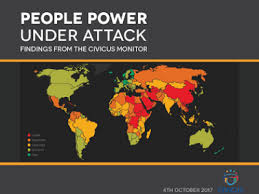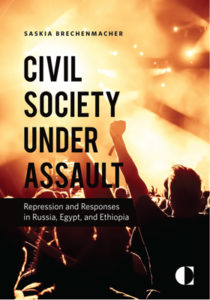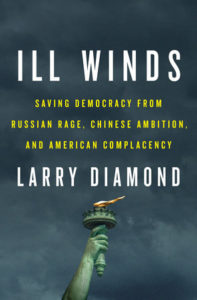 The trend of closing civic space crystallized at the beginning of this decade. In response, concerned international actors — including various bilateral aid agencies, foreign ministries, private foundations and international nongovernmental organisations — are working to address this problem, note Carnegie analysts Thomas Carothers and Saskia Brechenmacher. While some hold that pushing local partners to build wider constituencies for their work is key to resisting attacks on the legitimacy of civil society, others argue that constituency-building will always be a limited strategy as many civic causes inherently appeal only to certain communities.
The trend of closing civic space crystallized at the beginning of this decade. In response, concerned international actors — including various bilateral aid agencies, foreign ministries, private foundations and international nongovernmental organisations — are working to address this problem, note Carnegie analysts Thomas Carothers and Saskia Brechenmacher. While some hold that pushing local partners to build wider constituencies for their work is key to resisting attacks on the legitimacy of civil society, others argue that constituency-building will always be a limited strategy as many civic causes inherently appeal only to certain communities.
Beyond operational and programmatic debates, a number of larger questions remain unresolved in the minds of many funders, they observe:
 Closing or changing? Is the overall phenomenon best understood as a global trend of closing civic space, or of changing civic space? In other words, should it be understood as a more multidimensional and politically varied development than implied by the closing space narrative? Some critics argue that the “closing space” discourse assumes a largely homogenous civil society that primarily consists of professionalised NGOs and, in so doing, misses how civil society is changing but not necessarily shrinking in many places. …
Closing or changing? Is the overall phenomenon best understood as a global trend of closing civic space, or of changing civic space? In other words, should it be understood as a more multidimensional and politically varied development than implied by the closing space narrative? Some critics argue that the “closing space” discourse assumes a largely homogenous civil society that primarily consists of professionalised NGOs and, in so doing, misses how civil society is changing but not necessarily shrinking in many places. …
Symptoms or root causes? Is it more effective to focus on a relatively bounded agenda of promoting a positive enabling environment for civil society, or should funders approach the issue at a much higher level, and more broadly fight backsliding on democracy, pluralism and human rights? ….
 Global versus local? How can funders most effectively support local-level responses to the problem while taking into account its transnational and global dimensions? Many concerned international actors agree that effective responses need to be primarily located at the national level and be driven by local civil society. At the same time, the problem of shrinking civic space has clear transnational and global dimensions. …
Global versus local? How can funders most effectively support local-level responses to the problem while taking into account its transnational and global dimensions? Many concerned international actors agree that effective responses need to be primarily located at the national level and be driven by local civil society. At the same time, the problem of shrinking civic space has clear transnational and global dimensions. …
To blame or not to blame? Lastly, have aid providers done enough to ensure that they are not contributing to shrinking civic space? Aid providers continue to debate the extent to which they are exacerbating the problem by imposing, for example, certain organisational models on the civic sector in aid-receiving countries that make civil society less domestically rooted and sustainable…..
 Ultimately, mounting a larger, more effective and more coordinated response to the still-growing trend of closing civic space is a fundamental challenge for international aid and policy actors committed to democracy and human rights, they conclude. RTWT
Ultimately, mounting a larger, more effective and more coordinated response to the still-growing trend of closing civic space is a fundamental challenge for international aid and policy actors committed to democracy and human rights, they conclude. RTWT
At a forthcoming Carnegie forum, drawing from his new book, Ill Winds: Saving Democracy from Russian Rage, Chinese Ambition, and American Complacency, Larry Diamond will analyze the daunting challenges facing democracy globally and how the United States can recover its role as a leader in international democracy support. Moderator Thomas Carothers will engage Diamond – the founding coeditor of the Journal of Democracy and the co-chair of the Research Council of the International Forum for Democratic Studies of the National Endowment for Democracy – in a structured discussion to probe his thinking and bring in the audience for a larger dialogue. Copies of Ill Winds will be available for purchase. RSVP
| Thursday, June 13, 2019 |
| 12:15 to 1:45 p.m. |
| 1779 Massachusetts Avenue NW, Washington, DC 20036 |







